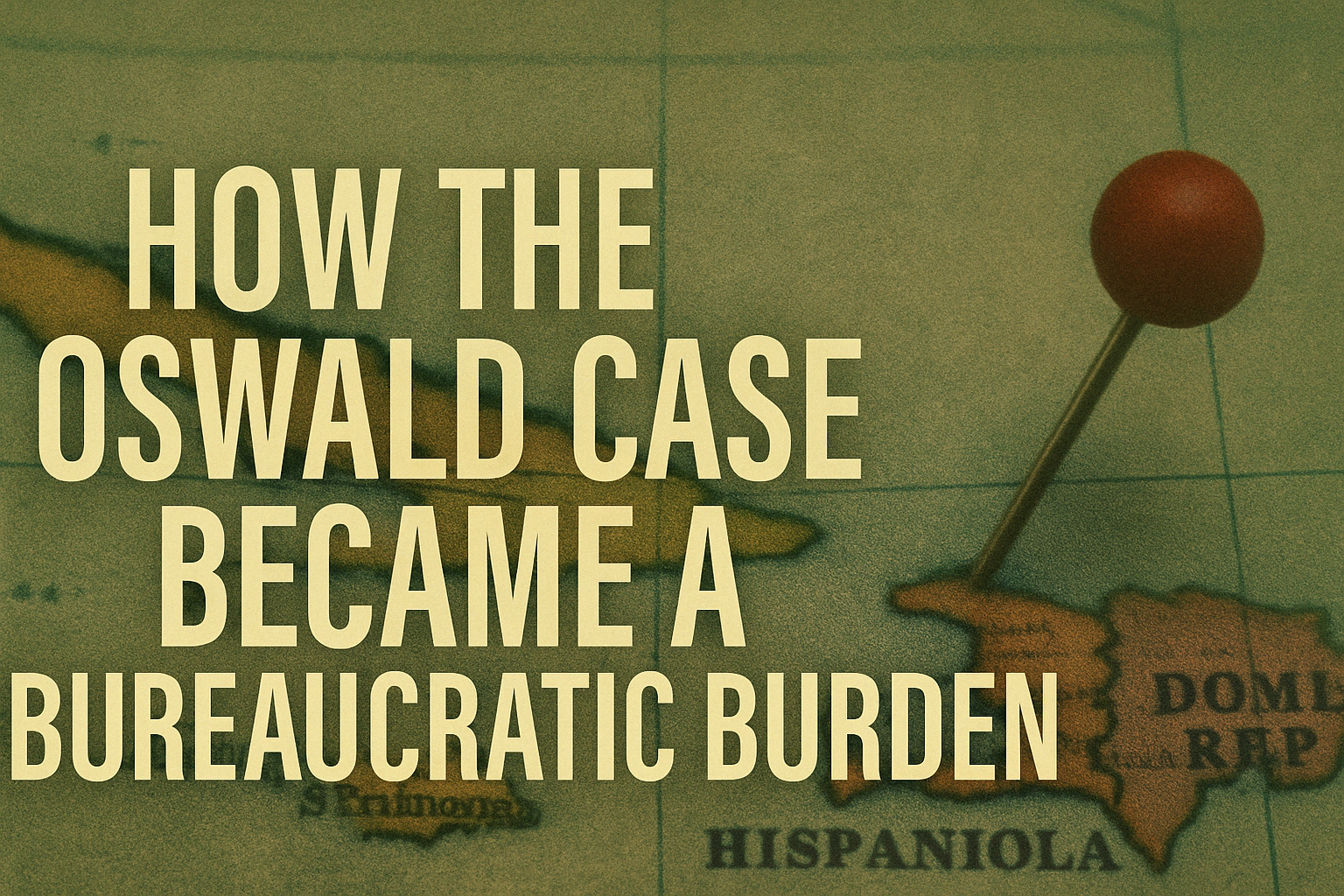In the weeks following President Kennedy’s assassination, government agencies scrambled to trace Lee Harvey Oswald’s movements, motives, and official interactions.
But by March 1964, as shown in document 194-10012-10400, some officials weren’t looking for answers-they were looking for distance.
The memo is a case study in bureaucratic fatigue and institutional avoidance.
🧾 A Letter That Says, “Enough”
The memo, written on March 23, 1964, is directed to a U.S. government security division and addresses lingering administrative concerns regarding Oswald’s passport file and reentry from the Soviet Union.
Its tone is not investigative-it’s procedural. It doesn’t ask questions-it recommends closure.
“In view of the information presently available… there would appear to be no further need for action… This should be treated as a closed matter.”
No call for further inquiry. No encouragement to reevaluate the decisions made in 1962. Just a polite request to shut the book.
🧱 Bureaucracy Versus History
The memo reflects a broader government instinct that was emerging in 1964: retreat into process, not pursuit of truth.
At the time, the Warren Commission was still working. Oswald’s motivations were still unknown. His time in the Soviet Union was full of gaps.
And yet, here was a memo suggesting that nothing more needed to be done.
It’s not conspiracy-it’s complacency.
🔄 The Case That Refused to Stay Closed
Ironically, while this memo argued for closure, history did the opposite. The Oswald file would become one of the most scrutinized in American history.
His travel, defection, and reentry became key questions for every major assassination investigation that followed.
This document shows that in the moment, some inside government just wanted it off their desks.
🚪 Closing the File Before the Story Ended
There’s a subtle warning in this memo. When government institutions prioritize administrative comfort over historical clarity, truth can be lost to paperwork.
Lee Harvey Oswald wasn’t a forgotten name in March 1964-but already, to some, he was just another folder to be filed away.

Leave a Reply